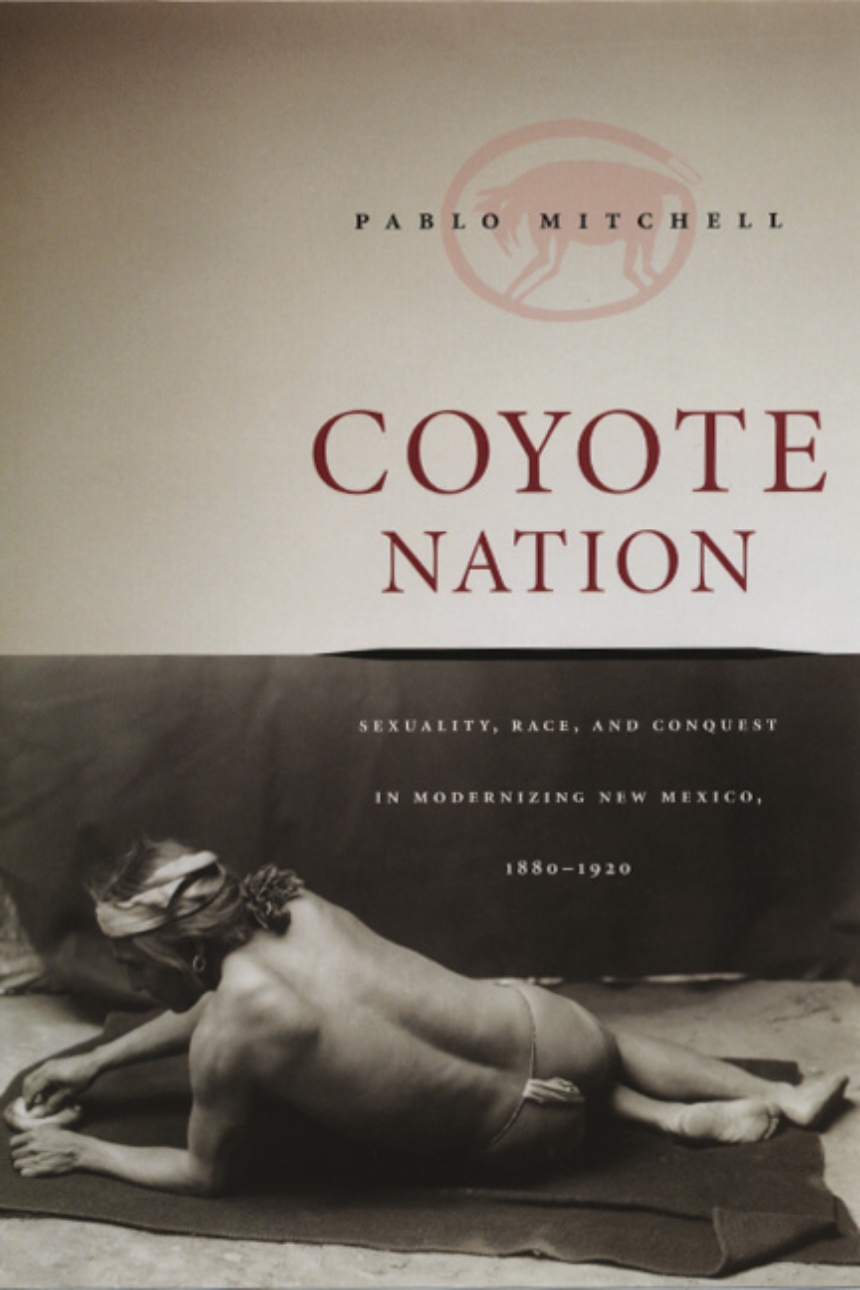Coyote Nation
Sexuality, Race, and Conquest in Modernizing New Mexico, 1880-1920
9780226532431
9780226532424
9780226532523
Coyote Nation
Sexuality, Race, and Conquest in Modernizing New Mexico, 1880-1920
With the arrival of the transcontinental railroad in the 1880s came the emergence of a modern and profoundly multicultural New Mexico. Native Americans, working-class Mexicans, elite Hispanos, and black and white newcomers all commingled and interacted in the territory in ways that had not been previously possible. But what did it mean to be white in this multiethnic milieu? And how did ideas of sexuality and racial supremacy shape ideas of citizenry and determine who would govern the region?
Coyote Nation considers these questions as it explores how New Mexicans evaluated and categorized racial identities through bodily practices. Where ethnic groups were numerous and—in the wake of miscegenation—often difficult to discern, the ways one dressed, bathed, spoke, gestured, or even stood were largely instrumental in conveying one’s race. Even such practices as cutting one’s hair, shopping, drinking alcohol, or embalming a deceased loved one could inextricably link a person to a very specific racial identity.
A fascinating history of an extraordinarily plural and polyglot region, Coyote Nation will be of value to historians of race and ethnicity in American culture.
Coyote Nation considers these questions as it explores how New Mexicans evaluated and categorized racial identities through bodily practices. Where ethnic groups were numerous and—in the wake of miscegenation—often difficult to discern, the ways one dressed, bathed, spoke, gestured, or even stood were largely instrumental in conveying one’s race. Even such practices as cutting one’s hair, shopping, drinking alcohol, or embalming a deceased loved one could inextricably link a person to a very specific racial identity.
A fascinating history of an extraordinarily plural and polyglot region, Coyote Nation will be of value to historians of race and ethnicity in American culture.
224 pages | 10 halftones | 6 x 9 | © 2005
Worlds of Desire: The Chicago Series on Sexuality, Gender, and Culture
Anthropology: Cultural and Social Anthropology
Culture Studies:
History: American History, Latin American History
Native American and Indigenous Studies
Sociology: Social History
Reviews
Table of Contents
Preface: A Note on Coyotes
Acknowledgments
1. Introduction
Bodies on Borders
2. Compromising Positions
Racializing Bodies at Pueblo Indian Schools
3. Carnal Knowledge
Racializing Hispano Bodies in the Courts
4. Transits of Venus
Ceremonies and Contested Public Space
5. Strange Bedfellows
Anglos and Hispanos in the Reproduction of Whiteness
6. "Promiscuous Expectoration"
Medicine and the Naturalization of Whiteness
7. "Just Gauzy Enough"
Consumer Culture and the Shared White Body of Anglos and Hispanos
8. Conclusion
Birth of a Coyote Nation
Notes
Bibliography
Index
Acknowledgments
1. Introduction
Bodies on Borders
2. Compromising Positions
Racializing Bodies at Pueblo Indian Schools
3. Carnal Knowledge
Racializing Hispano Bodies in the Courts
4. Transits of Venus
Ceremonies and Contested Public Space
5. Strange Bedfellows
Anglos and Hispanos in the Reproduction of Whiteness
6. "Promiscuous Expectoration"
Medicine and the Naturalization of Whiteness
7. "Just Gauzy Enough"
Consumer Culture and the Shared White Body of Anglos and Hispanos
8. Conclusion
Birth of a Coyote Nation
Notes
Bibliography
Index
